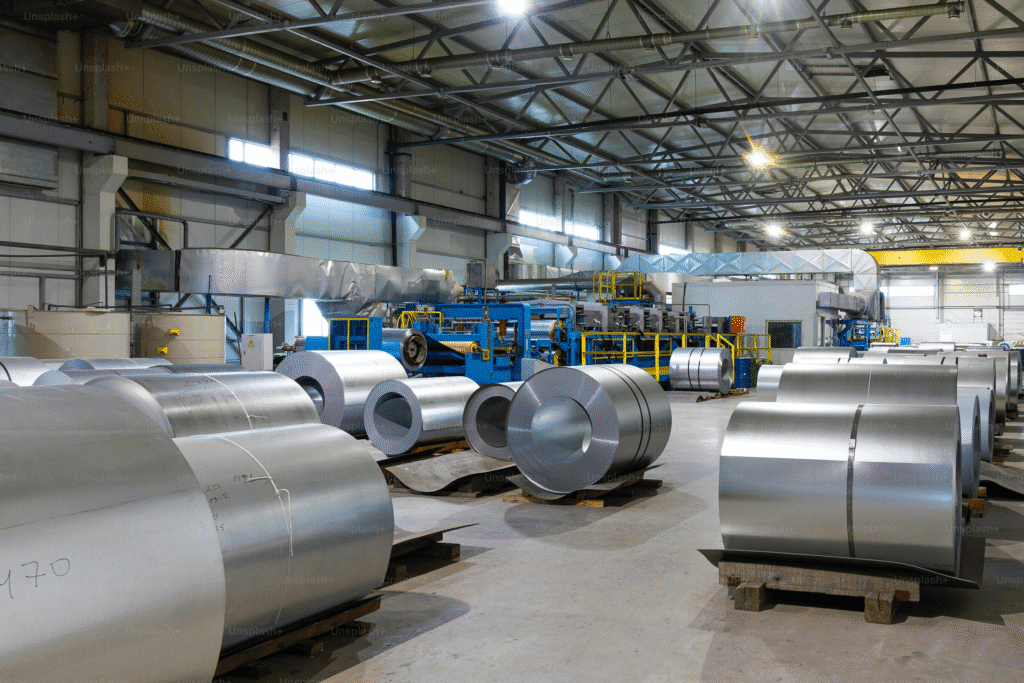The CEO of Nippon Steel, Eiji Hashimoto, has confidently stated that the U.S. government’s special “golden share” in U.S. Steel will not interfere with the company’s management decisions. This comes just a day after Nippon Steel finalized its massive $14.9 billion purchase of U.S. Steel, ending an 18-month-long negotiation process. The deal includes an agreement that gives the U.S. government certain controls, but Hashimoto insists this will not limit the company’s ability to run its operations as planned.
At a press conference in Tokyo, Hashimoto explained that while the U.S. government now holds a golden share—a special type of share that gives it veto power over certain decisions—Nippon Steel will still have full freedom to manage the business. “We won’t be constrained in pursuing anything we aim to do,” he said. “We retain sufficient managerial freedom.” The golden share allows the U.S. government to block major changes, such as moving U.S. Steel’s headquarters from Pittsburgh, sending jobs overseas, changing the company’s name, or buying another big competitor. However, Hashimoto made it clear that Nippon Steel has no plans to do any of these things.
The deal faced many challenges before finally getting approved, including strong political opposition in the U.S. But now that it’s done, Hashimoto sees it as a big step forward for Nippon Steel’s global strategy. “We struggled to complete this deal, but our global strategy is starting to take shape,” he said. The company is even considering further expansion in other parts of the world.

As part of the agreement, Nippon Steel has promised to invest around $11 billion in the U.S. by 2028. Hashimoto said this won’t be a problem because the company was already planning to increase its investments in the country. He also mentioned that the U.S. government’s recent move to impose higher tariffs on steel imports made buying U.S. Steel even more important for Nippon Steel’s long-term plans.
The market reacted positively to the news, with Nippon Steel’s shares rising by 2.5%, outperforming Japan’s main stock index, the Nikkei 225. This shows that investors believe the deal will be good for the company’s future.
Hashimoto’s comments make it clear that Nippon Steel is ready to move forward with its plans for U.S. Steel, despite the extra layer of oversight from the U.S. government. The company is committed to keeping jobs in the U.S., maintaining U.S. Steel’s headquarters in Pittsburgh, and making big investments to grow the business. With this deal, Nippon Steel is positioning itself as a stronger global player in the steel industry, and its leadership is confident that the golden share will not stand in the way of its success.
The agreement between Nippon Steel and the U.S. government is unusual because it gives Washington more control than is typical in such deals. Normally, companies don’t allow governments to have this much influence over their business decisions. But in this case, Nippon Steel agreed to these terms to make sure the deal went through. This shows how important the acquisition was for the company’s future.
Hashimoto also addressed concerns about whether Nippon Steel might need to raise more money to fund its investments in the U.S. The company’s vice chairman mentioned that increasing capital is always an option if needed, but Hashimoto seemed confident that they have enough resources to meet their goals without any major financial strain.
Overall, the message from Nippon Steel’s leadership is one of optimism. They believe that owning U.S. Steel will help them compete better in the global market, especially as trade policies and tariffs continue to change. The golden share might add some extra rules, but it’s not something that worries the company’s top executives. They are focused on growing the business, creating jobs, and making sure both Nippon Steel and U.S. Steel remain strong in the years to come.
This deal is a major milestone for Nippon Steel, marking its biggest move yet into the American market. With U.S. Steel now under its control, the company is set to become one of the world’s leading steel producers. And while the U.S. government will have a say in some key decisions, Nippon Steel’s CEO is confident that this won’t stop the company from achieving its long-term goals.
In the end, the story here is about two things—growth and trust. Nippon Steel is growing its global presence, and it’s trusting that the U.S. government’s involvement won’t hold it back. For now, the future looks bright for both Nippon Steel and U.S. Steel, as they begin this new chapter together.








